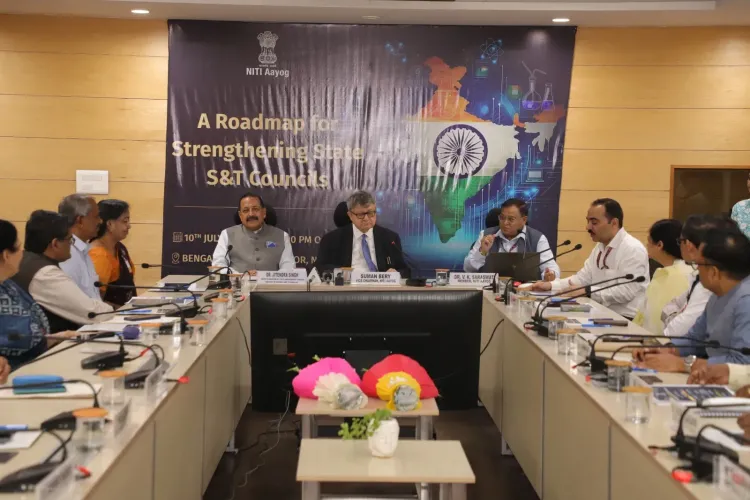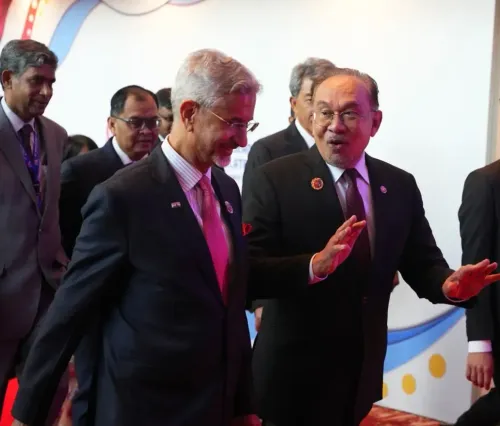How Can Centre-State Coordination Transform India into a Global Investment Hub?

Synopsis
Key Takeaways
- Importance of Centre-State collaboration in reforming investment climate.
- Focus on decriminalization of minor business offenses to ease compliance.
- Implementation of BRAP is essential for consistent business reforms.
- Investment strategies should be innovative and sector-specific.
- Continuous improvement in the ease of doing business is a national priority.
New Delhi, July 10 (NationPress) BVR Subrahmanyam, CEO of NITI Aayog, highlighted the pivotal importance of state-level implementation in shaping India's investment landscape during a crucial workshop focused on improving the ease of doing business and promoting investments in New Delhi.
He pointed out that valuable insights could be drawn from the diverse successful models present across various states.
Subrahmanyam called for streamlined processes, heightened accountability, and collaborative efforts between the Centre and state governments to position India as the most appealing and reliable destination for global investors.
The workshop convened senior policymakers with the aim of accelerating business reforms throughout India, delving into seven essential reform areas crucial for facilitating investments and enhancing the ease of doing business at the sub-national level.
Key areas discussed included the decriminalization of laws, reduction of compliance burdens, implementation of the Business Reform Action Plan (BRAP), development of industrial infrastructure, establishment of single-window clearance systems, financial and taxation reforms, and investment promotion strategies.
During discussions on decriminalization and compliance reform, various states showcased their ongoing initiatives derived from the Jan Vishwas Act 1.0, which aims to decriminalize minor business offenses at the state level.
States also focused on enhancing the speed of doing business, aiming to minimize the stages involved in the business lifecycle, thereby enabling quicker and smoother operations for enterprises.
The dialogue emphasized the necessity of converting minor business offenses into civil penalties, while also refining compliance mechanisms to alleviate the burden on entrepreneurs. Examples shared included abolishing imprisonment clauses, adopting self-certification practices, eliminating license renewals, and simplifying regulatory interactions to foster compliance and build trust with businesses.
There was a strong push for aligning state-level actions with the national Business Reform Action Plan (BRAP) framework to ensure that reforms yield measurable and comparable outcomes.
Industry representatives advocated for national legislation to synchronize decriminalization and compounding provisions across states. They proposed the introduction of a Trusted Taxpayers Programme for both direct and indirect taxes to incentivize compliance and create a more supportive regulatory atmosphere.
The session on investment promotion strategies underscored the need to institutionalize investment promotion as a continuous, core function of the state rather than a one-time activity. States presented innovative, sector-specific strategies rooted in local strengths and global demand trends.
Rajiv Gauba, a member of NITI Aayog, stated that the ease of doing business is a continuous process and emphasized the significance of reforms at the municipal level within states.
He also highlighted the potential for collaboration between NITI Aayog and the DPIIT to assist states in adopting a principle-based approach to decriminalization.
SCL Das, Secretary of the Ministry of MSME, pointed out the necessity of strengthening the institutional interface of MSMEs with the CBIC and State/UT governments.









